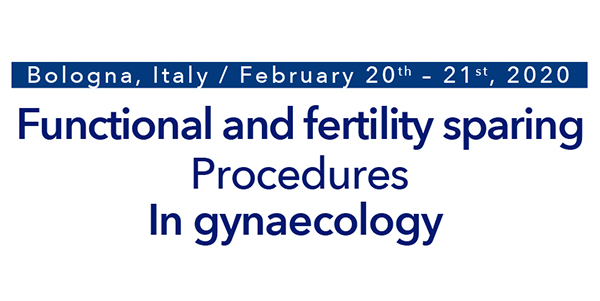Functional and Fertility Sparing Procedure in Gynaecology


Informazioni sull'evento
The reproductive system and the pelvic organs can face, even in young or fertile age, a
series of pathologies that can alter or limit their functions.
The management of young
patients with early diagnosed gynaecologic cancer or severe pelvic disease who wish
to become pregnant is a major challenge, especially as the number of survivors of
young reproductive cancer is rising. This is due both to the increase in the incidence of
gynaecological cancer in young patients and to the increasing age in which women seek
the first pregnancy.
Moreover, severe and widespread benign diseases, typical of the fertile age, such as
severe forms of endometriosis and some uterine pathologies may endanger functional
and reproductive integrity.
The organs contained in the pelvis are regulated by extremely delicate mechanisms that
can be damaged not only by various diseases, but also by medical or surgical procedures
that do not respect the different functional characteristics.
Just think of the low tract
urinary system functions, the procedures that regulates defecation, the mechanisms of
sexual functions, the delicate processes that allow the fertilization of the oocytes and the
implantation of embryos.
The conflict between treatments for the preservation of functions of the pelvic organs
and fertility and any radical intervention in many cases involves great medical and ethical
dilemmas.
This meeting aims to provide the most recent update on the mechanisms of regulation the
function of female pelvic organs and on the procedures of functional and fertility saving in
cases of benign and malignant diseases.
Co-Presidents of the Meetings:
Renato Seracchioli
Valentino Remorgida
Errico Zupi










